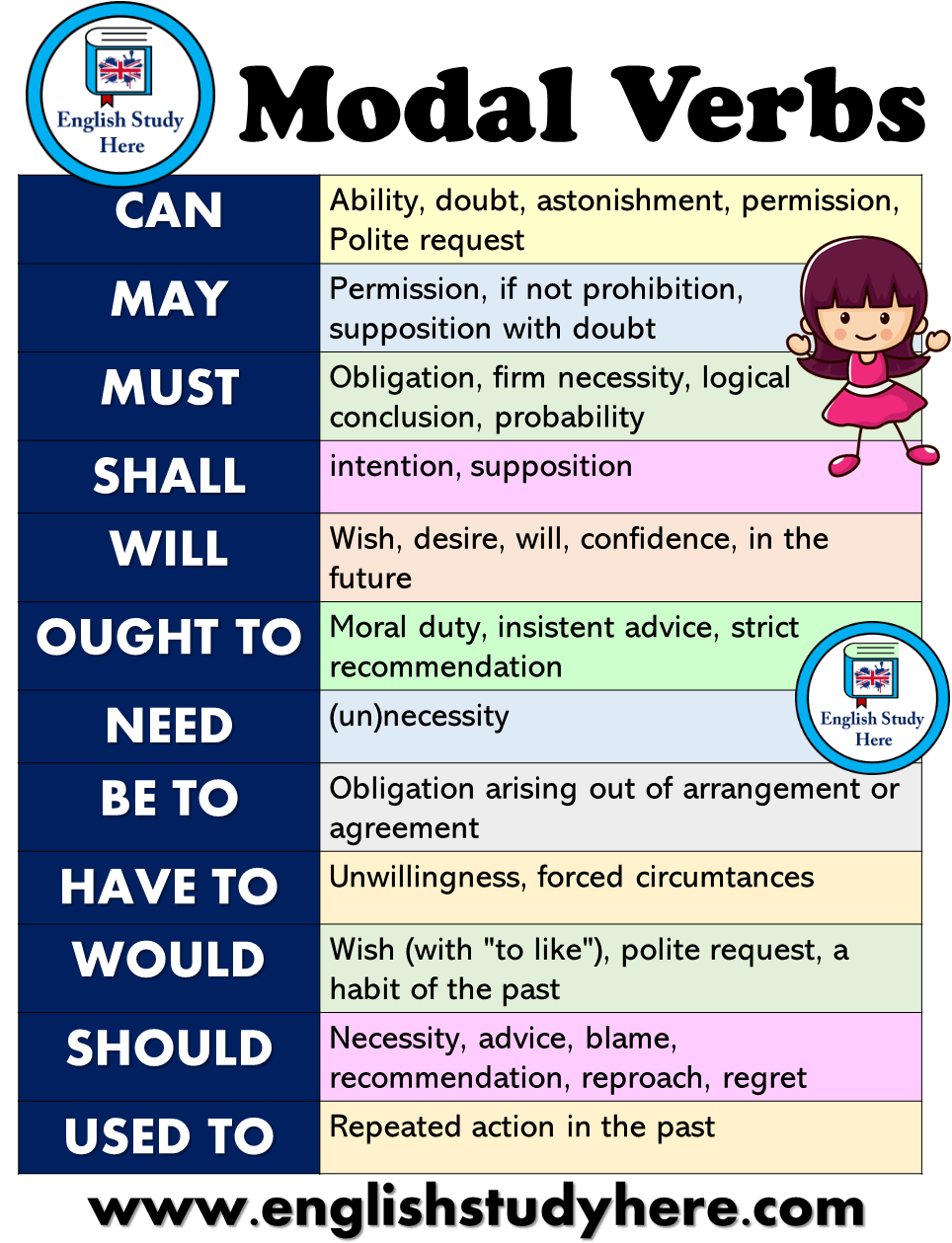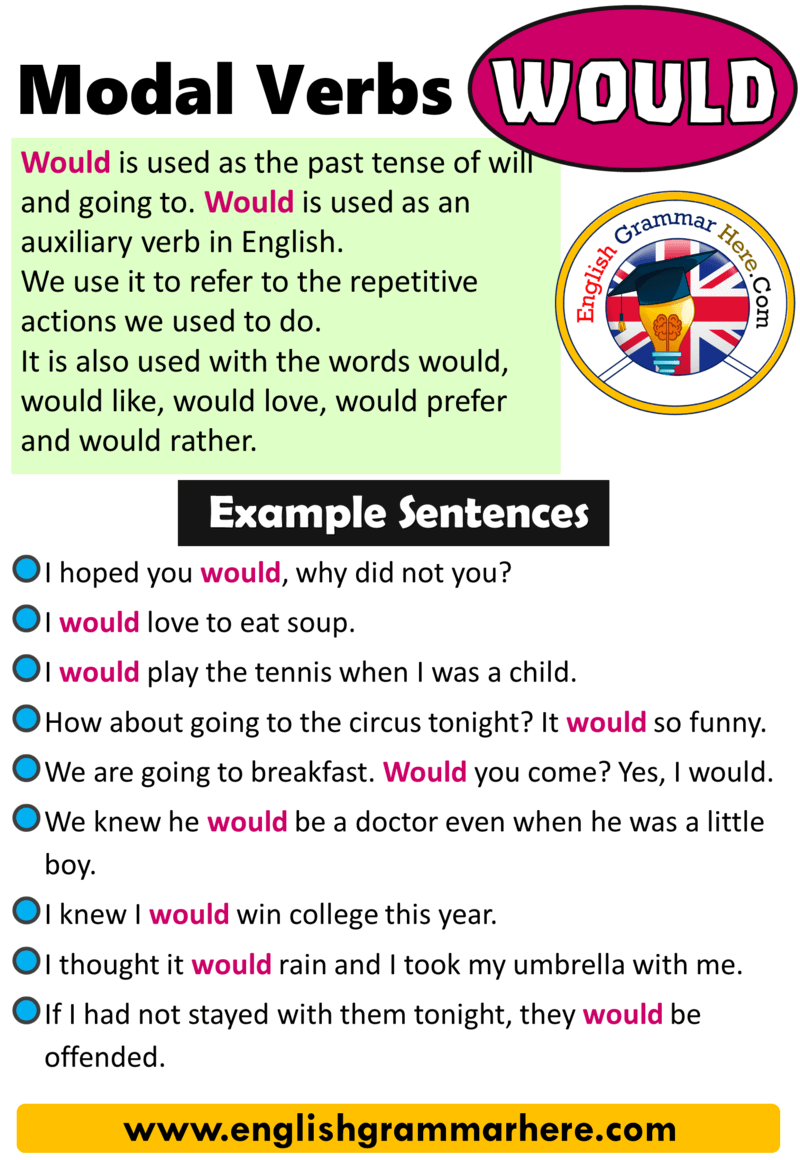Modal Verbs In English How To Use Modals English Grammar Here

Modal Verbs In English How To Use Modals English Grammar Here Modal verbs show possibility, intent, ability, or necessity. common examples of modal verbs include can, should, and must. because they’re a type of auxiliary verb (helper verb), they’re used alongside the infinitive form of the main verb of a sentence. modal verbs are used to express certain hypothetical conditions, such as advisability. Should. will. would. each of these modal verbs has a specific meaning and usage in english. for example, “can” is used to express ability, “may” is used to express possibility, and “must” is used to express necessity. modal verbs are also used to create different tenses in english. for example, “could” is used to create the past.

Modal Verbs Daniellafm Modal verbs in english, how to use modals can ability, doubt, astonishment, permission, polite request may permission, if not prohibition, supposition with doubt must obligation, firm necessity, logical conclusion, probability shall intention, supposition will wish, desire, will, confidence, in the future ought to moral duty, insistent advice, strict recommendation need (un)necessity be to. Click here for all the exercises about modal verbs. here's a list of the modal verbs in english: 1: they don't use an 's' for the third person singular. 2: they make questions by inversion ('she can go' becomes 'can she go?'). 3: they are followed directly by the infinitive of another verb (without 'to'). Why modal verbs are important the term "modal verb" comes from "modality." remember that modality includes some important properties such as possibility, ability, and obligation. if you're teaching or learning english, then rest assured that covering modal verbs will be well worth it. the modal verbs are essential for communicating. The modal verbs are: we use modals to show if we believe something is certain, possible or impossible: my keys must be in the car. it might rain tomorrow. that can't be peter's coat. it's too small. we also use them to do things like talk about ability, ask permission, and make requests and offers: i can't swim.

The Super Easy Way To Learn Modal Verb In English Types Of Modal Verbs Youtube Why modal verbs are important the term "modal verb" comes from "modality." remember that modality includes some important properties such as possibility, ability, and obligation. if you're teaching or learning english, then rest assured that covering modal verbs will be well worth it. the modal verbs are essential for communicating. The modal verbs are: we use modals to show if we believe something is certain, possible or impossible: my keys must be in the car. it might rain tomorrow. that can't be peter's coat. it's too small. we also use them to do things like talk about ability, ask permission, and make requests and offers: i can't swim. Might. must. ought to. shall. should. will. would. for the purposes of this tutorial, we have included some expressions which are not modal verbs including had better, have to, and have got to. these expressions are closely related to modals in meaning and are often interchanged with them. Modals possess specific features that set them apart from conventional verbs. understanding these characteristics can help immensely in effectively utilizing modals. here are the key features: modals don't change their form, meaning there are no 's' endings or past tense endings. after a modal, we use the base form of the verb.

Modal Verbs Would How To Use Modal Verbs In English English Grammar Here Might. must. ought to. shall. should. will. would. for the purposes of this tutorial, we have included some expressions which are not modal verbs including had better, have to, and have got to. these expressions are closely related to modals in meaning and are often interchanged with them. Modals possess specific features that set them apart from conventional verbs. understanding these characteristics can help immensely in effectively utilizing modals. here are the key features: modals don't change their form, meaning there are no 's' endings or past tense endings. after a modal, we use the base form of the verb.

Modals Concept Examples English Study Here

Comments are closed.